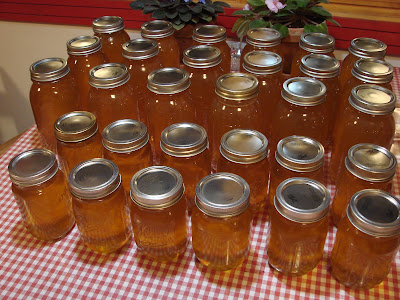| Honey bees aren't particularly aggressive bees, but their patience wears thin when you start brushing them off the honey frames. One of the ancillary benefits of beekeeping is that if your bee veil is not tied on well, bees can find their way inside and begin stinging your face. This is very painful, but it strengthens your immune system and builds character. Unless you are allergic to bee venom and go into anaphylactic shock, it takes about 200 strings to kill you, but by the time you have had five or six you will probably take some corrective action. A hive this size likely has around 50-70 thousand bees. |



























































